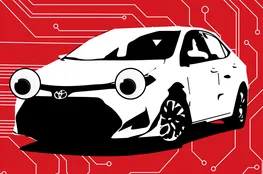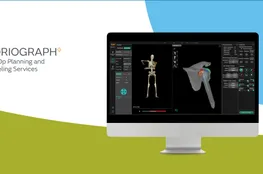Senra, a Southern California startup founded by ex-SpaceX engineers Jordan Black and Benjamin Shahanan, is stepping into the spotlight after announcing on June 18 a $25 million Series A aimed at revamping critical U.S. defense manufacturing. The startup focuses on wire harnesses, which are bundles of wires and connectors that deliver power and data across cutting-edge hardware like autonomous drones, satellites, and reusable rockets. According to Senra, investors include Dylan Field, co-founder and CEO of Figma, alongside top-tier firms CIV, Andreessen Horowitz via its American Dynamism practice, Sequoia Capital, Founders Fund, General Catalyst, and 8VC, signaling a strategic push to bolster national supply chains.
Don't Miss: Invest early in CancerVax's breakthrough tech aiming to disrupt a $231B market. Back a bold new approach to cancer treatment with high-growth potential. Named a TIME Best Invention and Backed by 5,000+ Users, Kara's Air-to-Water Pod Cuts Plastic and Costs — And You Can Invest At Just $6.37/Share Pre-IPO Offer: Get A Piece Of A Nearly $5T Global Opportunity By Joining BOXABL As An Early Shareholder At Just $0.80/Share Massive Demand & Disruptive Potential – Boxabl has received interest for over 190,000 homes, positioning itself as a major disruptor in the housing market. Revolutionary Manufacturing Approach – Inspired by Henry Ford’s assembly line, Boxabl’s foldable tiny homes are designed for high-efficieny production, making homeownership more accessible. Affordable Investment Opportunity – With homes priced at $60,000, Boxabl is raising $1 billion to scale production, offering investors a chance to own a stake in its growth.
Wire Harnesses, the Hidden Bottleneck in Defense Hardware According to Senra, wire harnesses are often the last item designed and the first to need installation, yet they remain essential to system reliability. Many manufacturers still depend on outdated tools such as Excel, Visio, and PDFs, combined with manual, error-prone assembly processes. This, the company says, has led to extended lead times, inconsistent product quality, and mounting bottlenecks in industries that rely on speed and precision. As demand rises and the skilled labor pool declines, legacy suppliers are increasingly unable to keep pace. Black told Bloomberg that harnesses are "unsung villains" in American manufacturing because outdated production methods persist. U.S. manufacturers still depend on manual techniques like wire stretching on wooden peg boards, processes that remained unchanged since the Cold War era. Trending: Maximize saving for your retirement and cut down on taxes: Schedule your free call with a financial advisor to start your financial journey – no cost, no obligation.
Harness production issues caused the deadly Apollo 1 fire 1967 and the Apollo 13 mishap three years later, as well as recalls by carmakers such as Mercedes, Kia, and Nissan. Senra addresses a growing crisis in U.S. manufacturing readiness, intensified by increased demand from firms like SpaceX and Anduril. Field told Bloomberg that he never knew he "was so excited about wire harnessing" until he met Black, emphasizing the founders’ passion and the strategic importance of their tech. A Strategic Move in a Bigger Manufacturing Wave According to Bloomberg, Senra currently manufactures about 1,000 harnesses monthly but aims to scale to 10,000 by next year. Plans include opening a 100,000‐square‐foot facility in Southern California equipped with custom wire‐strippers, plus a proprietary software platform to streamline design, supply‐chain tracking, and quality control. See Also: Tired of Grid Failures and Charging Deserts? This Startup Has a Solar Fix and $25M+ in Sales — Now Raising at $3/Share Senra joins a growing cohort of startups working to modernize automotive, defense, healthcare, and industrial supply chains, alongside Re:Build Manufacturing, Hadrian Automation, and Nominal, Bloomberg reports. The company says its wire harnesses are now used in a wide range of applications, supporting industries that power and protect everyday life across the U.S. According to Senra, its stated mission is to become the most dependable harness provider globally by delivering with consistency, precision, and no operational surprises. The $25 million injection will scale operations and also enable the rollout of Senra’s proprietary design software, set for release later this year. By solving a critical hardware bottleneck, Senra is positioning itself as a strong partner in America’s high‐tech defense infrastructure. Read Next: Are you rich? Here’s what Americans think you need to be considered wealthy. Image: Shutterstock © 2025 Benzinga.com. Benzinga does not provide investment advice. All rights reserved.
























